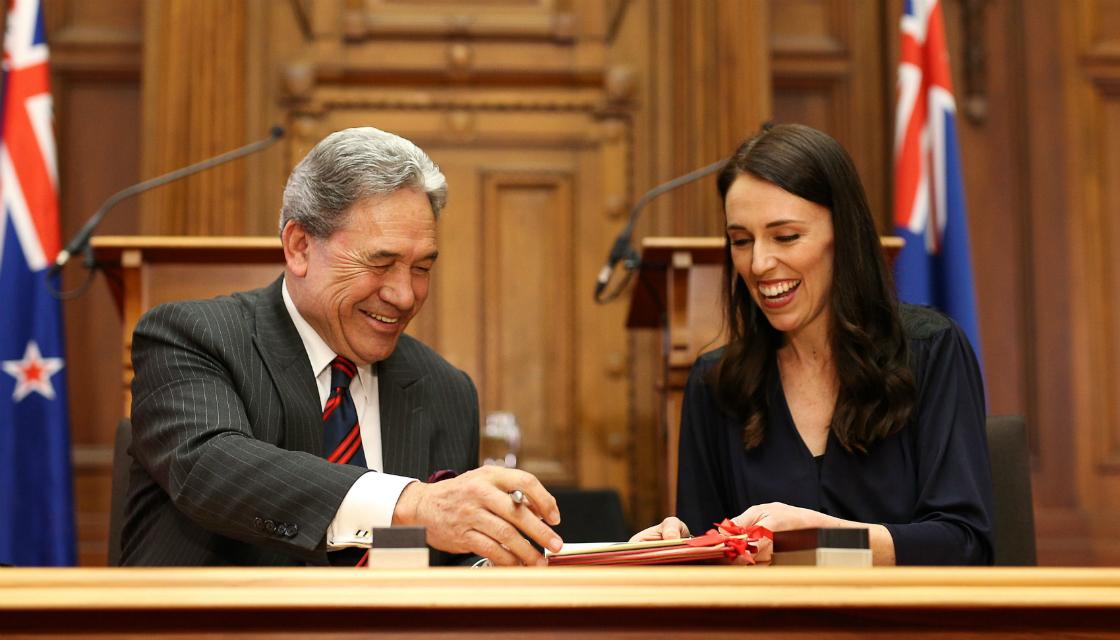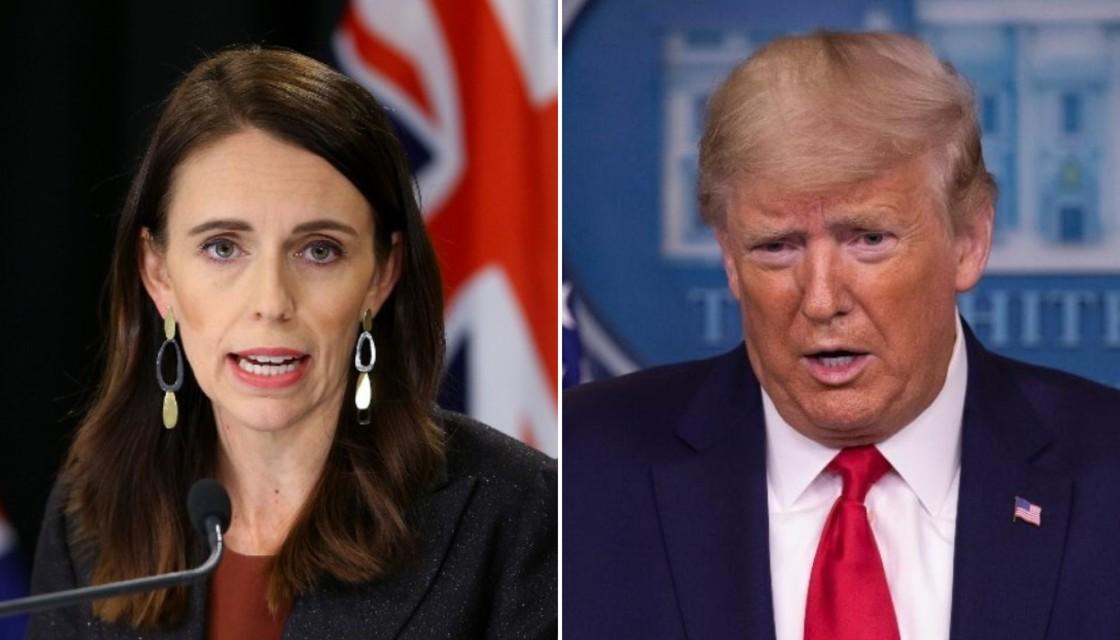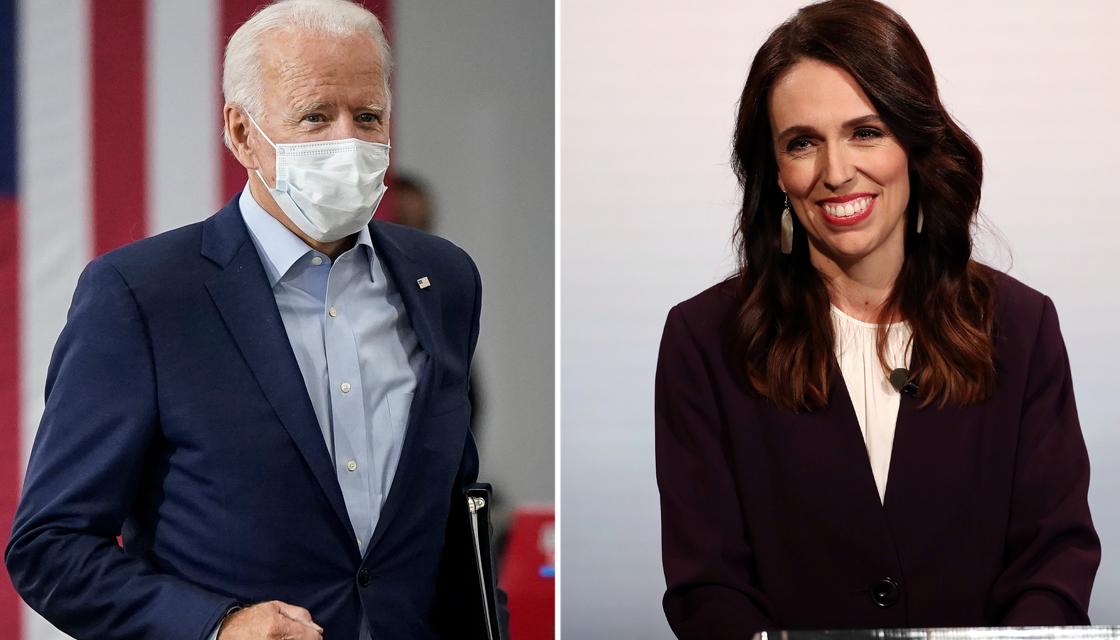New Zealand would've faced a crisis and may have been forced to confront the United States had Donald Trump been re-elected President, a leading international relations expert believes.
Trump lost the US election to Democratic opponent Joe Biden earlier this month - and Robert Patman, a politics professor at Otago University, says it's good for New Zealand that he did.
While he commends Prime Minister Jacinda Ardern for her "quite skilful" handling of the Trump administration while she's been in office, he says it was headed for a breaking point had the former reality TV star been voted back in.
Here's why Prof Patman believes the appointment of Biden will come as a relief to New Zealand's foreign diplomats.
How NZ has fared so well on the global stage so far
New Zealand is heavily reliant on international regulatory bodies like the United Nations (UN), World Trade Organization (WTO) and World Health Organization (WHO) to give us a voice at the table and protect our national interests.
Trade is of particular significance to New Zealand, with nearly 30 percent of our GDP coming from exports alone - much of which is agricultural. But our success in this area hinges on the global rules of trade between nations established by the WTO.
The WTO, which encompasses 164 member states and represents 98 percent of global trade, seeks through its rules to remove trade barriers, encourage transparent and predictable policies and discourage unfair arrangements.
These rules have worked well for New Zealand in the past.
Since the WTO's inception in 1995, Aotearoa has been the principal complainant in seven international trade disputes. The organisation has ruled in our favour on all seven occasions.

Prof Patman says the reason we've come out on top every time - all against countries larger than us, like India, Canada, the US and Australia - is because the rulings are based solely on the regulations the WTO has established, not on the bargaining power of each country.
"New Zealand likes a rules-based system because it means we're not subject to raw power," Prof Patman explained.
"That's how New Zealand was able to prevail in a trade dispute with the Clinton administration in 1999 over a ban on lamb exports.
"That's also how we got apples into Australia; for 80 years we weren't able to do that, but the WTO provided a legal framework and a set of rules by which the weaker party could have their case heard and indeed accepted.
"The more powerful party had to accept that as a member of the WTO - you can't join the WTO unless you accept the disputes mechanism as binding."
Why four more years of Trump may have been bad news for NZ
The legal frameworks established by the WTO and other international institutions like it have frustrated Trump during his four years in office, as they restrict America's ability to leverage its power in the global community.
It's prompted him to lash out at many of them during his four years in power.
Trump used his first days in office to propose a 40 percent reduction in support for the UN and other international institutions, describing it as "wasteful and counterproductive" expenditure.
His administration also blocked appointments to the WTO panel for more than two years, a move that's prevented it from issuing judgements on new cases since December 2018 and enabled countries to impose trade measures without the threat of consequences.

In addition, he's repeatedly denigrated organisations and withdrawn the US from diplomatic collaborations with other countries - from the Paris Climate Accord to the Human Rights Council.
Prof Patman says the Trump worldview, characterised by suspicion of international institutions and rejection of multilateralism, couldn't be more different to that of the New Zealand Government.
"For New Zealand, multilateralism and international institutions are absolutely essential because they protect our national interests. We are critically dependent on our international environment," he said.
"Had Mr Trump been re-elected to a second term, we would have faced a crisis because Mr Trump has been attacking and undermining those institutions which give us a voice at the table and help us protect our interests globally.
"His vision of the way forward is an international free-for-all in which the most powerful can act in an unrestrained fashion. That's our worst nightmare."
Prof Patman said a second presidential term for Trump would've required New Zealand to abandon its 'two-track approach' - where we try and agree with the US where we can, but refuse to subordinate our interests to theirs.
"My prediction is that had Trump won the election, sooner or later, New Zealand and many other countries would have to come off the fence and confront Trump," he said.
How NZ's relationship with the US will change after Biden's win
However Prof Patman says he doesn't think such extreme actions will be necessary now that Biden is about to be in power, who he believes will hark back to the leadership style of Trump's predecessors.
"What I would expect - and this will be pleasing to us - is that the Biden administration will accept international rules and try to rebuild America's international reputation, which has been severely tarnished during the Trump years," he said.
"I think Biden will be much more like previous Presidents to Trump, because America did a lot to create these institutions like the WHO, the WTO and the UN, and therefore want to see them work."

Despite the obvious differences in worldview, Prof Patman believes both Sir Bill English and Jacinda Ardern handled the relationship with the Trump administration adeptly while they were Prime Minister.
"I think the relationship between the Trump administration and New Zealand was quite good - I think Jacinda Ardern was quite skilful," he said.
"We didn't make a big deal, like we could've done, when President Trump undermined the WTO. We didn't make a big deal when Trump awarded the Presidential Medal of Freedom to Rush Limbaugh in January 2020," he said.
Limbaugh, within hours of the Christchurch terror attack which left 51 New Zealanders dead last year, theorised on his talk radio show that it was a left-wing false flag operation to discredit the right.
"There's an ongoing theory that the shooter himself may in fact be a leftist who writes the manifesto and then goes out and performs the deed purposely to smear his political enemies, knowing he's going to get shot in the process," he said at the time.
"You can't immediately discount this. The left is this insane, they are this crazy. And then if that's exactly what the guy is trying to do then he's hit a home run, because right there on Fox News: 'Shooter is an admitted white nationalist who hates immigrants.'"
Prof Patman said Limbaugh's comments were outrageous.
"Talk show hosts sometimes say these things, but it's quite another thing for the leader of a country we consider a friend and ally to reward this person with the Medal of Presidential Freedom. We could've made a big deal out of it, but we didn't."
While the relationship between New Zealand and the US is predicted to improve with Biden at the helm, Prof Patman doesn't think he'll put himself forward for a second term.
However he's not convinced Biden's withdrawal will open the door for a sensational return to the White House for Trump come 2024.
"Timing is everything in politics - and Mr Trump might discover that when he leaves the White House, the moment has passed him."





